
Every day some 830 women die from causes related to pregnancy or childbirth. Many more have serious injuries or long-lasting consequences. IPPF works around the world to improve maternal health through our clinics and outreach services and by training health workers, improving the availability of essential medicines and strengthening health systems.
Articles by Maternal Healthcare

Statement on the Guttmacher Institute's “Just the Numbers” report: a snapshot of the impact of the UK aid cuts
The Guttmacher Institute has today released new data showing the impact of the UK aid cuts on sexual and reproductive health and rights for the fiscal year 2021 - 2022. The figures show the devastating impact on the lives of women and girls around the world. Together with the effects of the Covid-19 pandemic, the cuts threaten to undo years of progress towards gender equality and increasing access to reproductive choice. When surveyed, major sexual and reproductive health organizations reported they expected to receive at least £218.9 million in the fiscal year (FY) 2021–2022 (from April 2021 to March 2022) for family planning activities in low- and middle-income countries. The resulting cuts to the family planning programs of these major program-implementing organizations are estimated to have totalled £132.4 million in FY 2021–2022. The loss of funding will result in: 9.5 million fewer women and couples receiving contraceptive services 4.3 million more unintended pregnancies 1.8 million more unplanned births 1.4 million more unsafe abortions and 8000 more maternal deaths The figures also show how much could have been achieved through sustained UK aid spending. IPPF’s Director-General, Dr Alvaro Bermejo, said: “The Guttmacher figures are a harrowing, but sadly unsurprising, insight into the catastrophic impact that the UK aid cuts will have on the health and lives of millions of women, girls and marginalized people across the globe, and serve to confirm what sexual and reproductive health charities have been saying since they were first made aware of the cuts. “We must also remember that the Guttmacher numbers are just a snapshot of the 2021 – 2022 fiscal year, and the effects of the Government’s sudden and short-sighted termination of support will stretch far beyond that, piling unthinkable pressure on people already dealing with the fallout of the COVID-19 pandemic, and leading to millions of unintended pregnancies and thousands of preventable deaths. “With the upcoming spending review in November, we ask the UK Government to reconsider the cuts, which IPPF still believe to be outside of the boundaries of the law, and reinstate the 0.7% commitment, so that it can finally deliver on its promises to the millions of people it chose to abandon.” IPPF also signed on to a joint letter from the UK SRHR Network. For media inquiries please contact [email protected]
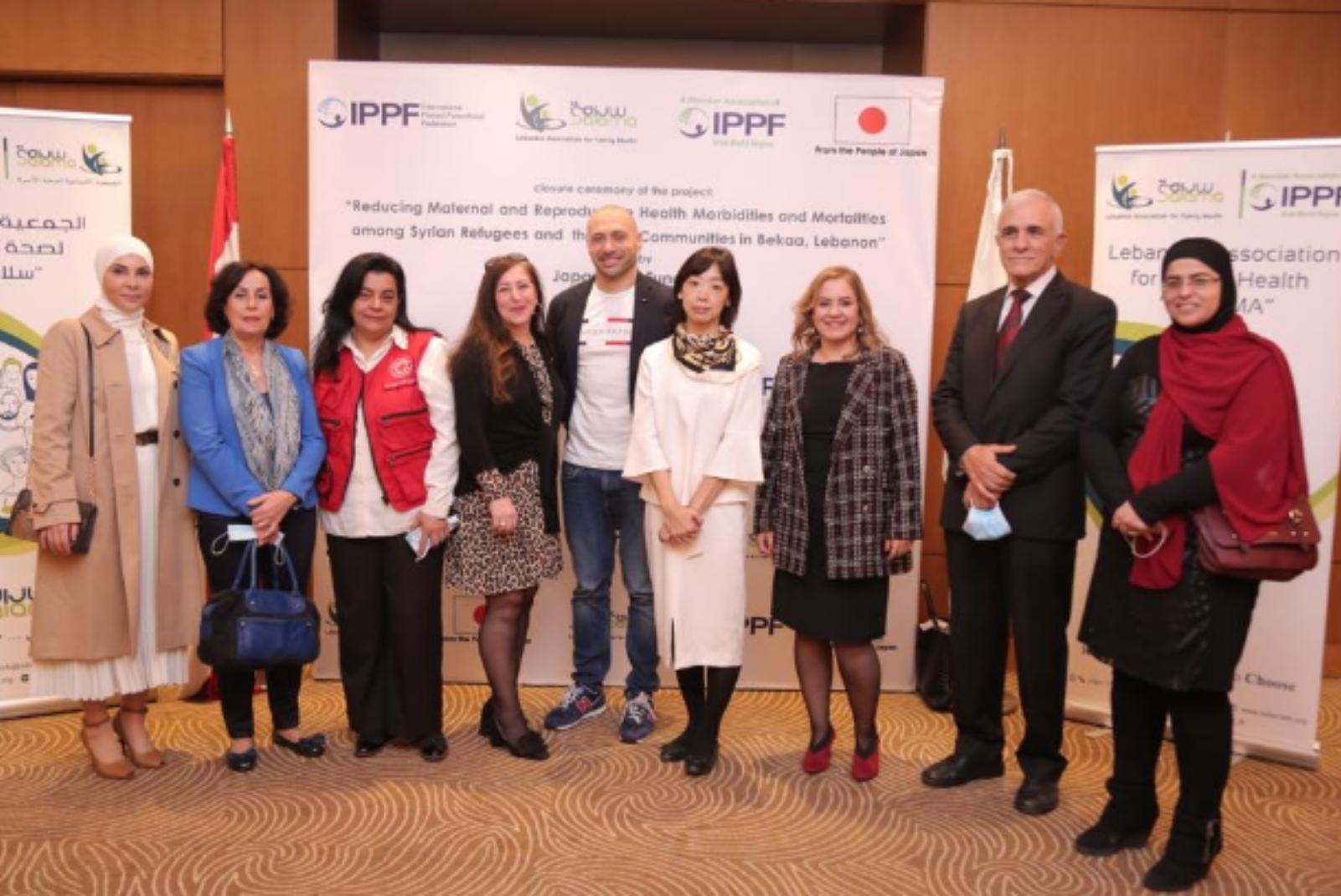
The Lebanese Association for Family Health concludes Japan-funded project on HIV and reproductive health
On 13 December 2021, the Lebanese Association for Family Health (SALAMA) hosted a closing ceremony of its Japan Trust Fund project, "Reducing maternal mortality and morbidity related to reproductive health among Syrian refugees and the Lebanese host communities in the Bekaa", at the Movenpick Hotel in Beirut. It was attended by the representatives from the Japanese Embassy in Lebanon, the Ministry of Social Affairs, the Lebanese Order of Midwives, international organizations, and civil society groups. The event celebrated many achievements, including its reach to 6,115 people with more than 102,000 sexual and reproductive health (SRH) services, through speeches, presentations, and video documentaries. It also served as an opportunity to look back on the various challenges the project faced due to the country’s political and economic crises, the COVID-19 pandemic, and the Beirut explosion. Many reiterated the further needs in the country, particularly among those in humanitarian situations. The Japanese government has been funding SALAMA's work in the Bekaa region since 2017, and this project was the second one. President of SALAMA, Dr Joseph Challita, and the executive director, Ms Lina Sabra, expressed their deep gratitude to the Government of Japan in their speeches. The representative of the Japanese embassy responded with an acknowledgement of the relevance and good outcomes of the project. Dr Joseph Challita said: "We are gathered here today to celebrate our success in implementing this project. Let us strive together, as always, to make our voices heard by leaders and decision makers who have the ability to create an environment that facilitates equal access to contraceptives and family planning services for all women and girls." Ms Lina Sabra said: "SALAMA was committed to the priorities of Japan's official development assistance ODA policy, which focuses on empowering all marginalized groups that need services and respecting the cultures of different communities... Salama focused on contributing to the achievement of Sustainable Development Goals 3, 5, and 13." Ms Maki Yamaguchi, Embassy of Japan in Lebanon, said: "In light of the multiple crises that Lebanon is facing, it has become difficult for the Lebanese community and the Syrian refugees to access the necessary health services, hence the importance of launching successful projects." Project documentation videos: JTF end of project report HIV success story Family planning success story Pregnant women program (Mama & Baby Kits) Dignity kits
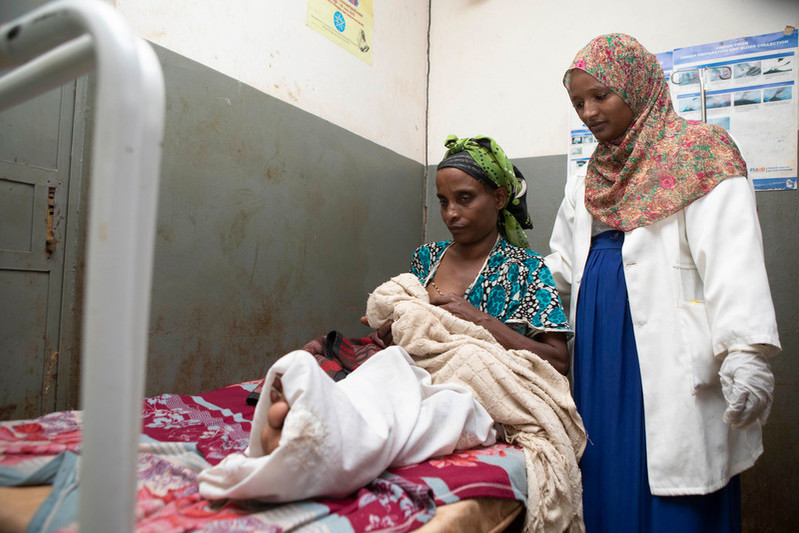
"Before, there was no safe abortion"
Rewda Kedir works as a midwife in a rural area of the Oromia region in southwest Ethiopia. Only 14% of married women are using any method of contraception here. The government hospital Rewda works in is supported to provide a full range of sexual and reproductive healthcare, which includes providing free contraceptives and comprehensive abortion care. In January 2017, the maternal healthcare clinic faced shortages of contraceptives after the US administration reactivated and expanded the Global Gag Rule, which does not allow any funding to go to organizations associated with providing abortion care. Fortunately in this case, the shortages only lasted a month due to the government of the Netherlands stepping in and matching lost funding. “Before, we had a shortage of contraceptive pills and emergency contraceptives. We would have to give people prescriptions and they would go to private clinics and where they had to pay," Rewda tells us. "When I first came to this clinic, there was a real shortage of people trained in family planning. I was the only one. Now there are many people trained on family planning, and when I’m not here, people can help." "There used to be a shortage of choice and alternatives, and now there are many. And the implant procedures are better because there are newer products that are much smaller so putting them in is less invasive.” Opening a dialogue on contraception The hospital has been providing medical abortions for six years. “Before, there was no safe abortion," says Rewda. She explains how people would go to 'traditional' healers and then come to the clinic with complications like sepsis, bleeding, anaemia and toxic shock. If they had complications or infections above nine weeks, Rewda and her colleagues would send them to Jimma, the regional capital. "Before, it was very difficult to persuade them to use family planning, and we had to have a lot of conversations. Now, they come 45 days after delivery to speak to us about this and get their babies immunised," she explains. "They want contraceptives to space out their children. Sometimes their husbands don’t like them coming to get family planning so we have to lock their appointment cards away. Their husbands want more children and they think that women who do not keep having their children will go with other men." "More kids, more wealth" Rewda tells us that they've used family counselling to try and persuade men to reconsider their ideas about contraception, by explaining to them that continuously giving birth under unsafe circumstances can affect a woman's health and might lead to maternal death, damage the uterus and lead to long-term complications. "Here, people believe that more kids means more wealth, and religion restricts family planning services. Before, they did not have good training on family planning and abortion. Now, women that have abortions get proper care and the counseling and education has improved. There are still unsafe abortions but they have really reduced. We used to see about 40 a year and now it’s one or two." However, problems still exist. "There are some complications, like irregular bleeding from some contraceptives," Rewda says, and that "women still face conflict with their husbands over family planning and sometimes have to go to court to fight this or divorce them.”
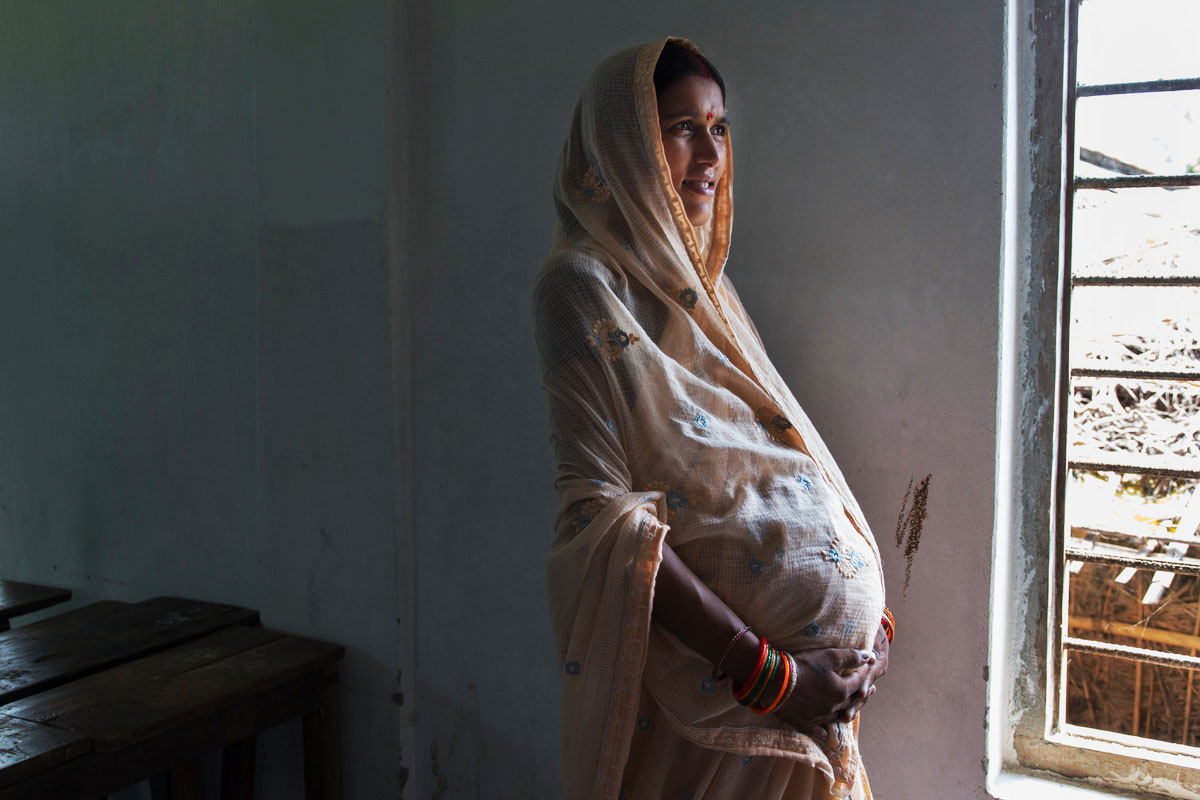
What you need to know about pregnancy and COVID-19
This page is updated regularly, make sure you come back for the latest information. Last update: 16 May 2020 Being pregnant is often filled with many emotions, but a pregnancy during the current outbreak of coronavirus (COVID-19) could mean that fear, anxiety and uncertainty around your health and your unborn baby’s health has crept in. Understandably, you may have a lot of questions, so to help you answer some of these we've put together the following guidance on pregnancy and COVID-19. Before we start, you should note that all pregnant people, including those with confirmed or suspected COVID-19 infections, have the right to high quality care before, during and after childbirth. This information is not intended to meet your specific individual healthcare requirements and this information is not a clinical diagnostic service. If you are concerned about your health or healthcare requirements we strongly recommend that you speak to your clinician or other healthcare professional, as appropriate. I’m pregnant – am I at higher risk from COVID-19? COVID-19 is a new virus and there is still a lot to learn about it. Research is currently underway on the impact of COVID-19 on pregnant people, so available data is limited, but currently there is no evidence to suggest pregnant people are at a higher risk of contracting COVID-19 or are at a higher risk of severe illness. However, due to the changes in their body and immune system, it is known that pregnant people can be severely impacted by respiratory infections. It is therefore advised you take all the necessary precautions to protect yourself from COVID-19 and inform your healthcare provider if you experience possible symptoms such as a fever, cough and difficulty breathing. A recent study conducted by The Royal College of Obstetricians & Gynaecologists has found that pregnant people from black, Asian and minority ethnic (BAME) backgrounds were more likely than other people to be admitted to hospital for coronavirus. How can I protect myself against COVID-19? It’s vital you take all recommended precautions recommended by your government and the World Health Organization to avoid COVID-19 infection. You can help protect yourself and others by: Social distancing – the fewer people you come into contact with, the less likely you will be exposed to COVID-19 Avoiding crowded areas – if you do have to go into public areas remain at least two meters away from other people Avoiding public transport, where possible Working from home, where possible Washing your hands frequently with soap and water for at least 20 seconds. If soap and water is not available, an alcohol-based hand sanitizer can be used Avoiding touching your face, especially around the mouth, nose and eye area Taking care while sneezing or coughing. As COVID-19 is spread through respiratory drops, you should cover your nose and mouth by either coughing or sneezing into your bent elbow or into a tissue. Dispose of the tissue immediately. Can I pass COVID-19 to my unborn baby? We still do not know if a pregnant person with COVID-19 can pass it onto their fetus or newborn baby during pregnancy or delivery, but after birth a newborn is susceptible to person-to-person spread. To date, the virus has not been found in samples of amniotic fluid or breast milk. Should I attend my antenatal and postnatal appointments? Yes, it’s very important that you continue to receive antenatal and postnatal care. Contact your maternal healthcare provider and ask them for advice on how best to continue your routine appointments. Pregnant people may be advised to receive fewer face-to-face appointments with their midwife or doctor, with more contact by telephone or online. Let your healthcare provider know ahead of time if you have COVID-19 symptoms or have been in contact with someone with the virus. Is it safe to give birth at a hospital? Yes, most hospitals will have COVID-19 protocols in place for you to safely give birth. If you are unsure of the procedures that are in place, contact the hospital you are planning to give birth at. If you were planning on having a home birth, contact the hospital to ensure this service is still available. It is important to maintain an open dialogue with your main healthcare provider around available birthing options to see what is the most appropriate for you. Many hospitals have also limited the number of people who can attend the birth, so check with your hospital on what their individual procedure is. Do I need to have a caesarean birth if I have suspected or confirmed COVID-19? No. Caesareans are to only be performed when medically justified. The mode of birth should be discussed with you, taking into consideration preferences and any obstetric indications for intervention. Will I be able to breastfeed my baby if I have suspected or confirmed coronavirus? Yes, you can breastfeed your baby. To date, the virus has not been found in samples of breast milk. Breast milk provides protection against many illnesses and is the best source of nutrition for most infants. A discussion with your family and your maternity team on breastfeeding is advised on whether and how to start or continue breastfeeding. When you or anyone else feeds your baby, the following precautions are recommended: Wash your hands before touching your baby, breast pump or bottles Avoid coughing or sneezing on your baby while feeding at the breast Wear a face mask while breastfeeding, if available Follow recommendations for pump cleaning after each use If you choose to express milk, consider asking someone who is well to feed your expressed breast milk to your baby. Where can I find more information? You can visit the World Health Organization to keep up-to-date on the latest information regarding pregnancy and COVID-19. It’s also advised you keep in contact with your maternal health care provider and up-to-date with information and protocols of the hospital or maternity clinic you will be giving birth at.
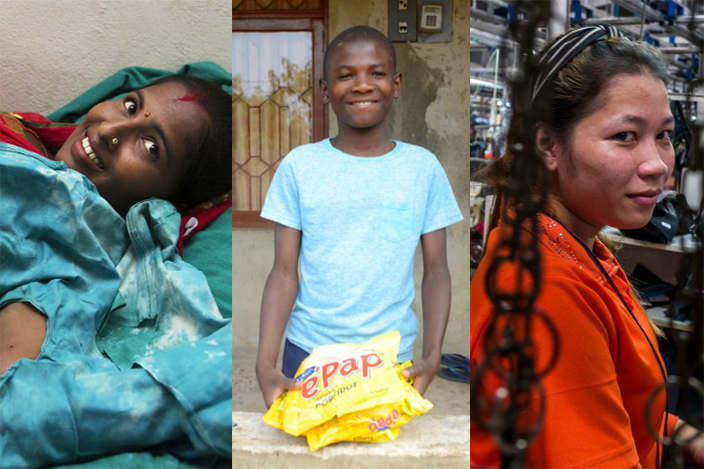
20 March: International Day of Happiness
Our Member Associations around the globe help bring happiness to people every day, by allowing them to access the sexual and reproductive rights they are entitled to. This International Day of Happiness, we’re sharing just a few of the stories of those who told us they were glad to be the recipient of IPPF services. "I’m so happy I now don’t have to worry about contraception for another 5 years" – Muna, Nepal Muna, now 21, got married when she was a teenager and soon had two children, a girl and a boy. She was keen to know more about her contraception options, particularly after flash flooding hit her country. IPPF Humanitarian, through the Family Planning Association of Nepal, were able to step in to help her. Read more about Muna "I am happy about life here" – Antonio, Mozambique 12-year-old Antonio moved in with his aunt after both his parents died from HIV-related illnesses. Antonio is also HIV positive, and with the help of IPPF Member Association AMODEFA, his aunt was able to tell him about it in an appropriate way, and to seek medication that best suited him. Read more about Antonio "I was very happy when my daughter was born" – Sineang, Cambodia After three years of marriage, garment worker Sineang had started to wonder why she hadn’t yet become pregnant. After noticing some vaginal discharge, she visited a Reproductive Health Association of Cambodia clinic to seek treatment, and for support on her journey to become a mother. Read more about Sineang
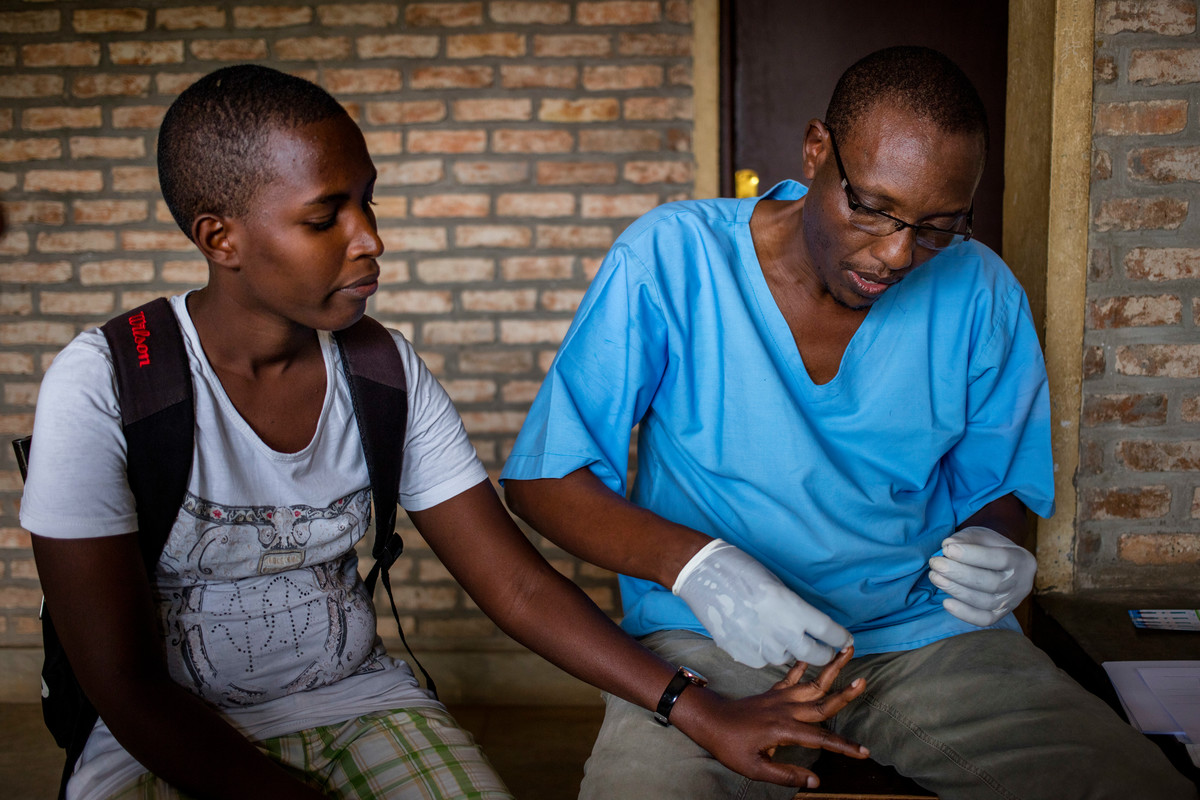
The Global Gag Rule: The impact in Burundi
Burundi is landlocked between Democratic Republic of the Congo, Rwanda, and Tanzania. Of the estimated 10.72 million population, 67% live below the poverty line. Association Burundaise pour le Bien-Etre Familial, (ABUBEF) set up in 1991, provides a range of essential services, with a strong focus on HIV. Around 84,000 people are living with HIV in Burundi, of whom 12,000 are children under 14. ABUBEF’s focus is on HIV prevention and management: from youth-friendly counselling to programmes to prevent mother-to-child transmission. The withdrawal of US funding due to the Global Gag Rule will drastically reduce and, in some instances, close ABUBEF’s vital healthcare services and programmes. It is estimated that loss of funding to ABUBEF through the global gag rule will deny 117,016 people access to safe, sexual and reproductive healthcare. ABUBEF currently supports around 2, 123 people with anti-retroviral treatment, who will be affected by the cuts. Donavine Uwimana, Executive Director of ABUBEF, “The GGR affects our very existence, with a forecasted funding cut of 39% in 2017 as well as a major decline in the supply of almost all sexual and reproductive health and HIV commodities.” ABUBEF provides services to a range of clients including people living with HIV such as pregnant women, internally displaced persons and sex workers. The impact through funding losses affects service provision – including safe delivery for HIV-positive women, and a reduction in medical staff and drugs and commodities available. IPPF is trying to find alternative funds to fill the gaps – a combination of long- and short-term measures to avoid closures and reductions in services. Donavine explains how far-reaching the impact is for ABUBEF: “Almost all contraceptives, HIV reagents, STI drugs, antiretroviral and consumables for HIV management are procured through UNFPA, USAID and US-financed government programmes, which will be affected by the GGR,” she says. IPPF visited several ABUBEF run projects at risk of closure across Burundi that included a centre in Kirundo for vulnerable women such as sex workers and survivors of gender-based violence. And in Ngozi, an HIV clinic that provides mobile clinics, and a maternity ward with a focus on the prevention of mother-to-child transmission. Learn more about the Global Gag Rule Help us bridge the funding gap
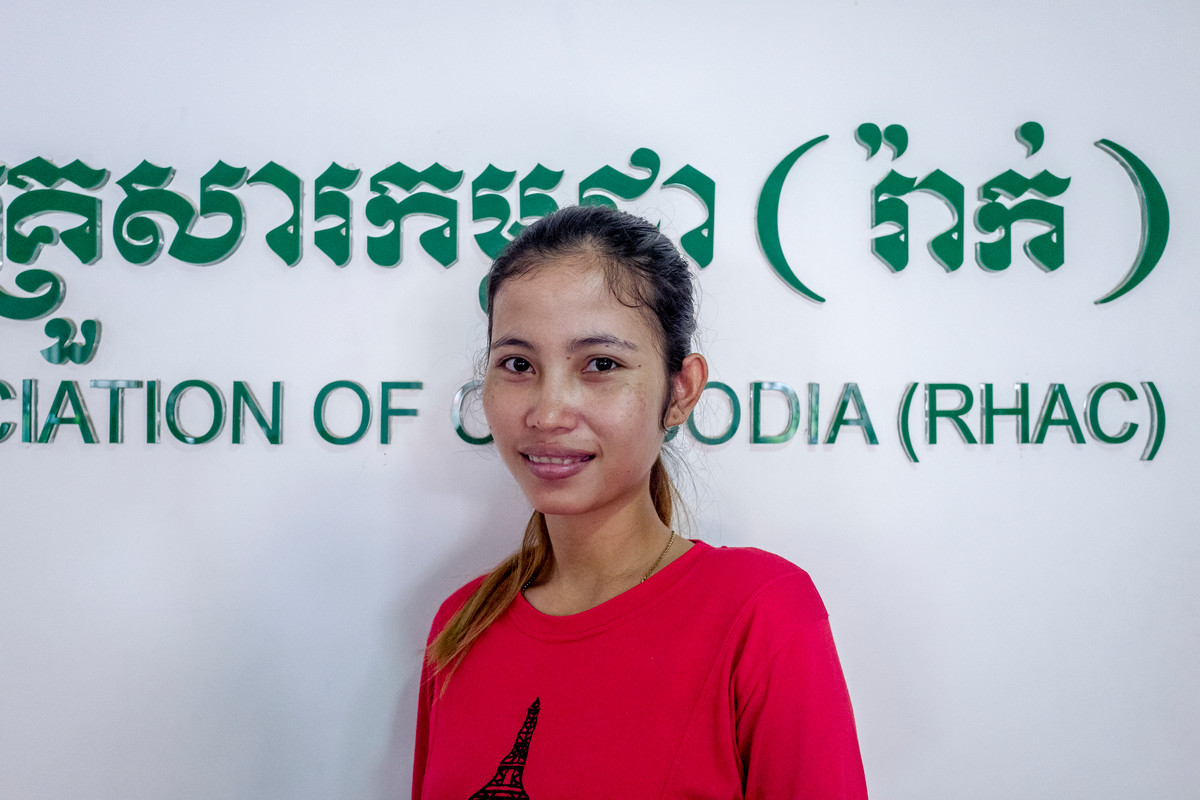
“The doctors have also been giving me advice on how to look after myself and the baby"
When garment worker Ny thought she might be pregnant with her first child, a home test kit quickly confirmed her suspicions. But the 23-year-old – who is originally from Takeo province but moved to Phnom Penh to take up a job in the garment industry – did not know where to go to seek prenatal care. After a cousin recommended that she visit a nearby Reproductive Health Association of Cambodia clinic, Ny took her relative’s advice – and has gone back eight times to date. “I come here every month to check on the baby,” she says, cradling her belly. “I had never been before I got pregnant.” During her visits to the medical clinic, Ny says, she has had a raft of standard tests and procedures as part of her prenatal care, including two ultrasounds, blood and urine tests, and vaccinations. “The doctors have also been giving me advice on how to look after myself and the baby [such as] to eat nutritious food and not to carry heavy things,” she says. As well as caring for the health of mother and unborn child, RHAC staff have also offered up valuable family planning information. “I did not know about how to plan to have children before I came to the clinic,” Ny says. “The doctors here told me that there are three different methods of [long-term] contraception: medication, an implant and an IUD.” Ny, who sews winter clothing at a factory while her husband also works in a nearby garment factory, says she was very glad to learn about her options. “This child was unplanned, but I don’t feel any regret because I had already been married for two years. But after having the baby I plan to use birth control, though I don’t know what method I will use,” she says. “I know that I don’t want to have another child straight away. It may be two or three years until I have the next one, as I want to wait until my family’s finances improve.”
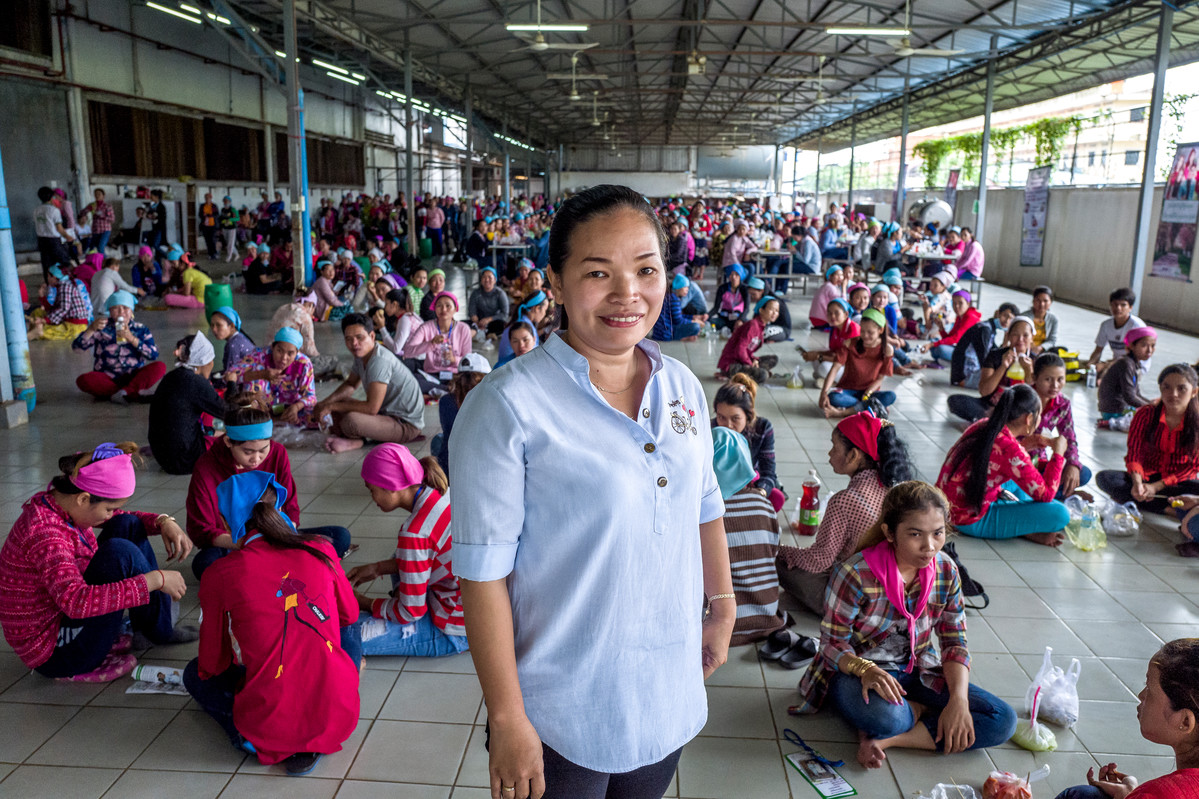
“When they don’t dare to ask questions about sensitive health topics, they don’t have the information they need"
Female workers, many of them undereducated migrants from rural areas, dominate the garment sector in Cambodia. And Propitious garment factory in Takhmao, a small city that lies just south of the capital Phnom Penh, is no exception. Women make up more than 90 percent of the factory’s workforce. Helping to oversee the 3,700-strong workforce is human resources manager Kouch Davy, who has worked at Propitious since it opened four years ago. Seeing a need to improve the workers’ sexual and reproductive health knowledge, she says she decided to work with the Reproductive Health Association of Cambodia (RHAC) because of its reputation for providing high-quality services. “I raised it in a management meeting, and the board was happy to explore it,” she says. For almost two years, trained staff from RHAC have been visiting the factory twice a month to meet with workers during their lunch break. They answer questions on topics ranging from birth control to STIs and abortion. The organisation has also provided training to the nurses who work in the factory’s on-site medical clinic. Davy says the factory’s female garment workers have changed as a result. “They are more open to asking questions about sexual health and they have also become more informed about the subject,” she says. “When they don’t dare to ask questions about sensitive health topics, they don’t have the information they need, so they tend to exaggerate their problems and ask for sick leave. But when they go to see an RHAC clinic and get proper treatment, there is less sick leave. “Now that they understand about contraception, there are fewer women getting pregnant and taking maternity leave, so that also helps with the workflow. ” Davy says the factory has seen requests for sick leave drop by an average of between 100 to 200 cases a month – and any decrease in absenteeism is a major boon for productivity. “The factory works like a chain: if just one person on the production line takes a day off, it affects the overall productivity,” she says. “And if a worker comes to work sick, they have problems concentrating.” Even Davy says she has gone to RHAC to seek medical care, visiting one of their clinics a few months ago for a breast examination. Meanwhile, the company that owns Propitious has extended its partnership with RHAC to a second factory in Phnom Penh. The firm has even requested that the NGO starts visiting its largest factory, which is situated in a rural province and has 10,000 workers, in the future.
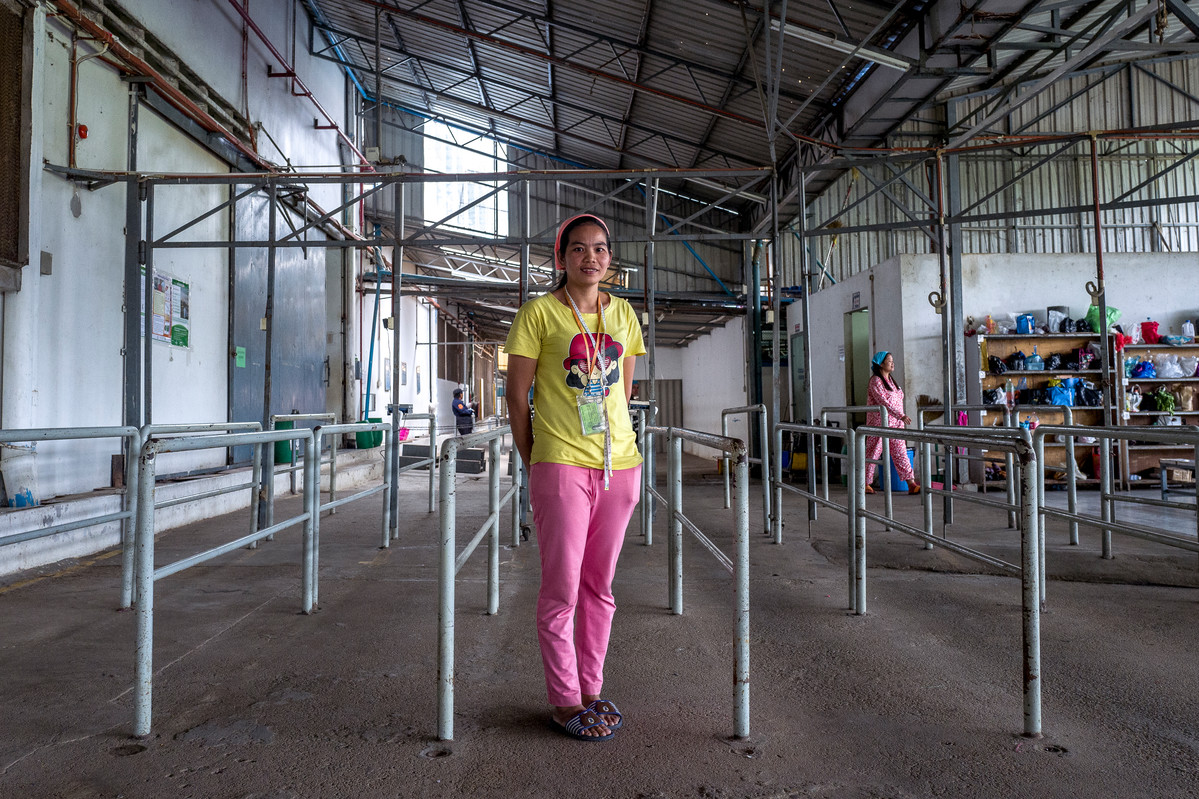
"During the pregnancy I was very worried”
Sophorn, a garment worker for the past decade, first visited a Reproductive Health Association of Cambodia (RHAC) clinic when she was pregnant with her first child. She returned for health checks each month until, at five months pregnant, she lost the baby. Her second pregnancy also resulted in a miscarriage, leaving her distraught. Then, she got pregnant a third time, in 2013. “I started to discuss with the doctors how to protect my child,” she says. “They gave me medication to strengthen my cervix, which I took for six months. In the seventh month, I gave birth prematurely.” Doctors told Sophorn that her baby girl was health, but she only weighed in at 1.7 kilograms. The infant was taken to a specialist children’s hospital, where she was cared for an additional two weeks. “During the pregnancy I was very worried,” Sophorn says. “I felt so happy when I finally delivered my child.” Her daughter was born without any complications is now a happy and healthy four years old. In initial stages of her third pregnancy, Sophorn’s friends told her that she would have to undergo surgery on her cervix or have injections to help her carry her baby to term, and doctors at a private clinic confirmed their suggestions. However, she decided to seek a second opinion at RHAC, where doctors instead gave her a prescription to strengthen her cervix. “When I heard I needed to have that surgery I was very scared, so I was relieved when the doctor at RHAC told me to take the medication instead,” she says. “While I was taking the medication I observed my body and any changes to it, so when I felt unwell I would go to the doctors and consult them, so I felt comfortable to continue taking it.” Sophorn also went for appointments at a government-run hospital, but found that their services were also lacking. “I told the doctors about losing my first and second babies, but they only weighed me and measured my stomach. There weren’t any more examinations or very much care,” she says. “When I went to RHAC they did so many examinations and had so many services, so I think it’s really better to go to RHAC for these kinds of services.” She estimates that during her third pregnancy, she had ten appointments at RHAC clinics at a cost of 40,000 to 60,000 riel (£7.40 to £11.15) each time. Compared to just 2,000 riel for an obstetrics appointment at the public hospital, the difference in cost is significant. “It’s expensive for me because my salary is little.” Despite the relatively high prices, Sophorn already knows where she will go for medical care in the future. “I want to have one more child, and I have already planned that when I decide to do it I will go to RHAC to get my cervix checked first,” she says. Until that day comes, Sophorn is taking the oral contraceptive after receiving advice about birth control from RHAC’s clinicians, with a midwife from the NGO making regular visits to the factory.
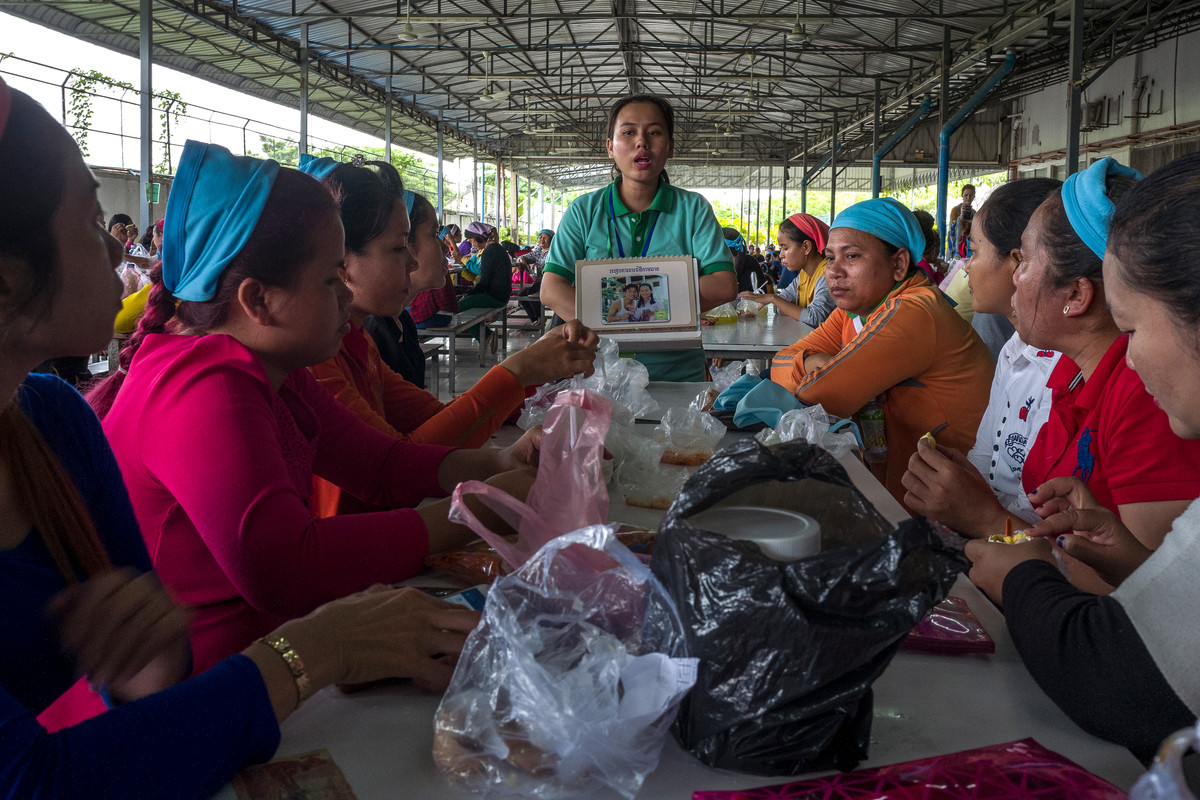
“Just yesterday during the outreach service, a woman asked me why she didn’t get her period after having an abortion..."
Pann Chandy gave her first sexual education lesson when she was still at school as a volunteer youth social worker with the Reproductive Health Association of Cambodia (RHAC). She had no qualms about standing up in front of her classmates to discuss culturally taboo topics when she was just a teenager. Now aged 25 and in possession of a Bachelor degree in midwifery, Chandy has been employed by RHAC for less than a year, working as part of the organisation’s health outreach team. The job is demanding: she is tasked with regularly visiting four karaoke parlours, eight garment factories and 20 villages in Phnom Penh, with plans to expand to two universities imminently. Travelling for hours A round trip to some communities can take two hours or more on her motorcycle, travelling alone into areas that are not always easily accessible. “Sometimes I have the clinic staff with me, but rarely,” Chandy says. “I promote the health services provided by Reproductive Health Association of Cambodia as well. If they are interested in going to a clinic, I give them a referral,” she says. One of the factories on her regular roster is Propitious garment factory in Takhmao, a small city south of Phnom Penh. Chandy spends two days a month at the factory, where she speaks to groups of women or has one-on-one discussions about sensitive topics. Passionate about the job “Just yesterday during the outreach service, a woman asked me why she didn’t get her period after having an abortion. She wanted to know what was wrong,” she says. “It’s common for women to use unsafe abortion methods. Mainly they take medicine from a pharmacy, and the pharmacy doesn’t give them any advice on how to use it. Often they go to cheap, unlicensed clinics near the factories for medical abortions.” Chandy is passionate about her job at Reproductive Health Association of Cambodia, and dreams about one day setting up her own pharmacy where she could provide comprehensive advice to clients. “There are a lot of unlicensed pharmacists in this country,” she says, many of which prescribe the counterfeit medicines that have inundated the market. “I think I may have the capacity to become a licensed one."







